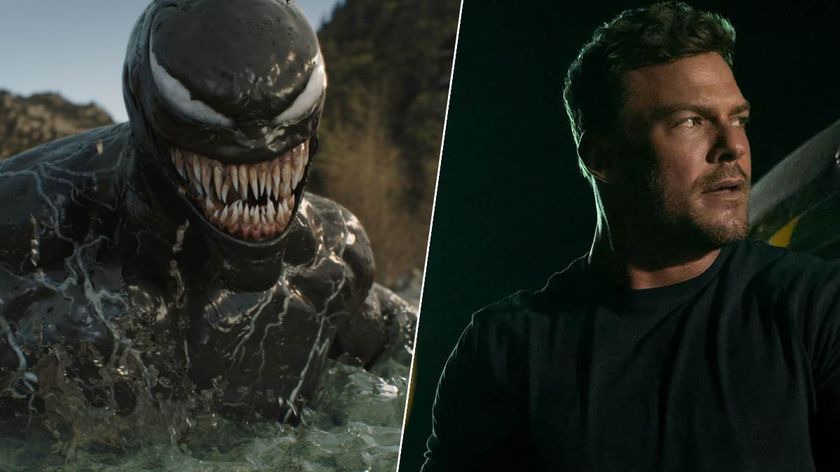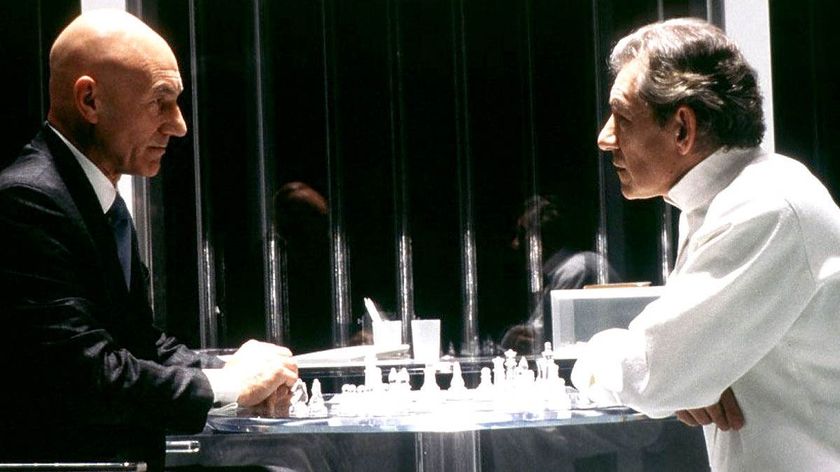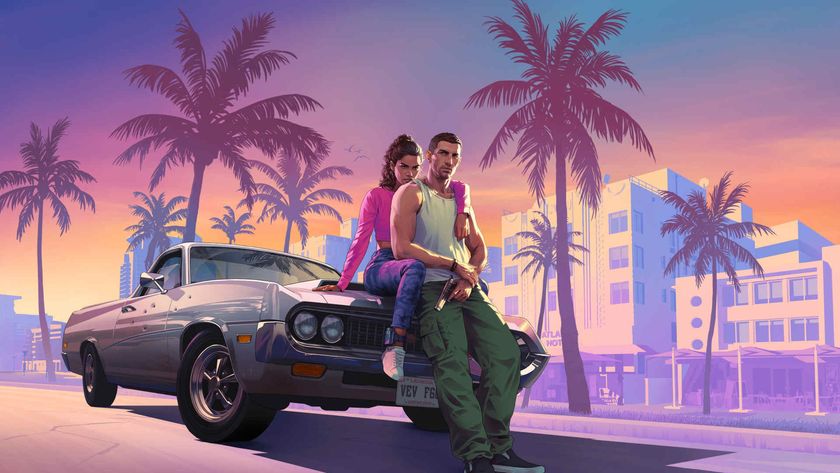Forget Batman, who played the best Bruce Wayne ever?
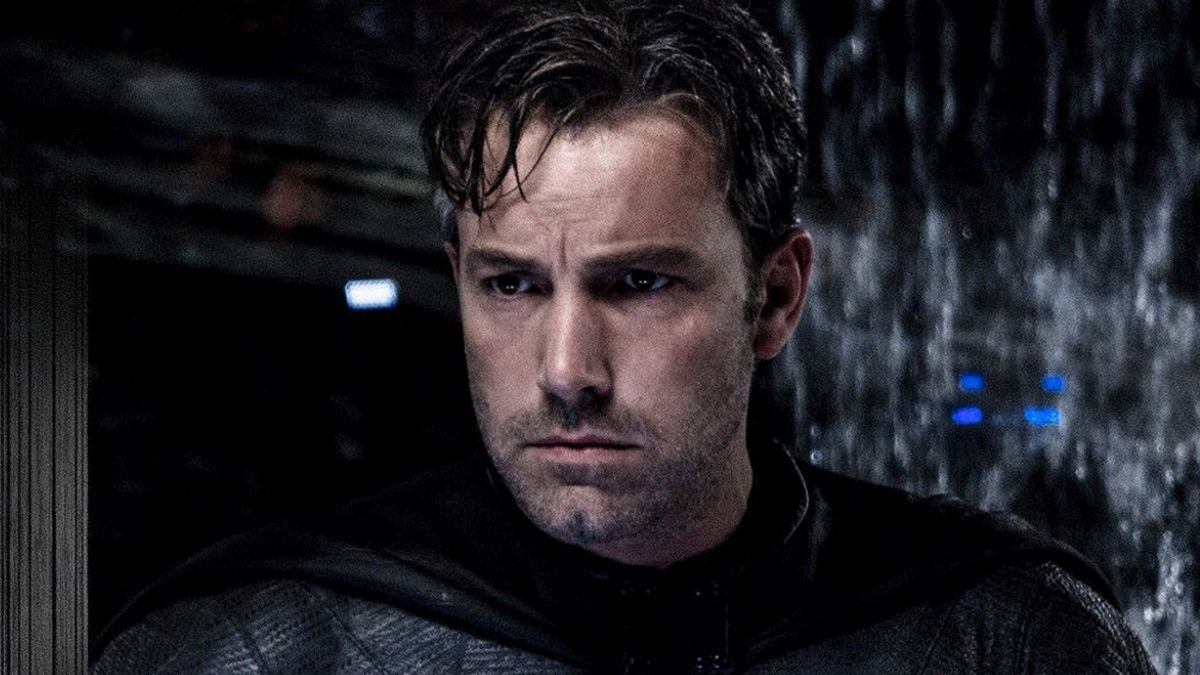
When you think of Batman, you tend to think of, well, Batman. Because obviously you do. He has a cool suit, loads of gadgets, the best fictional car that isn’t ECTO-1, and he’s really, really good at punching goons up in endlessly entertaining ways. Bruce Wayne? He's just the guy you see when the less cool stuff is happening, right? Well no. While he's not always portrayed satisfactorily on screen, (because he’s deceptively hard to get right), on paper he's as interesting and important a part of the bat-equation as anything else.
To get him right, you have to make Bruce embody a great many traits that are hard to convincingly balance, and that's before you even start trying to bond him with Batman. There’s the borderline arrogant intelligence and capability, but also the tortured self-doubt and guilt. And the upbeat, cocky wit that naturally comes with knowing you’re almost always the sharpest man in the room, along with the knowledge of how isolating that can be. And also the rage. And the uncompromising, counterpoint dedication to self-control. As such, history is littered with a lot of highly variable performances, so, with Ben Affleck now getting his second shot in Justice League, I’m going to take this opportunity to go through the lot, and see who, so far, is the best Batman-when-he’s-not-Batman.
Starting with…
9. George Clooney – Batman & Robin (1997)
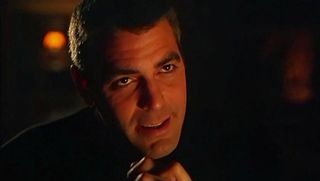
Oh, Clooney-Wayne, we hardly knew ye. And that’s a damn shame, because on paper, George Clooney is Bruce Wayne. He’s intelligent, pithy of wit, has exactly the right calibration of dark-eyed good looks, and oozes enough charm to fill a moderately-sized paddling pool in around half an hour. With the right script, Clooney could not fail to deliver a perfect Bruce Wayne. Unfortunately, the script he got was the product of two days spent writing ice puns, before shoving said puns in a bag and shaking them up a bit.
Read more: The secret history of the Batman and Superman movies you never got to see
Batman & Robin is a mess. A total, unremitting car crash of careless film-making, seemingly under the impression that if you play Gotham for laughs, it doesn’t matter how ham-fisted your narrative, visual design, continuity, character motivation, or discordant tonal clashes are, Because comedy, right? Oh Joel…
But yeah, long story short, George did his best, and had a couple of scenes that showed the potential he had, if only he could have been cast in a serious Bat-flick. But every step of the way, he had his legs swept out from under him by Bat-credit-cards, airborne snowboarding, and the fact that Arnold ‘nightmarishly miscast’ Schwarzenegger got top billing over the guy who played Batman. Clooney eventually embraced the blame for the film’s wretched nature, but the tragic fact is that he was actually its one shot at quality. Alas, that spark was smothered under a pillow of the finest, downy incoherence.
Sign up to the SFX Newsletter
Get sneak previews, exclusive competitions and details of special events each month!
8. Lewis Wilson – Batman (1943)
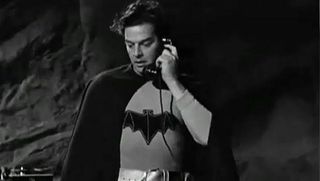
Expecting Adam West to be the earliest Bruce Wayne on this list? Nope, he was actually the second screen Batman by more than twenty years. There’s every chance you’ve never heard of Lewis Wilson, but he’s actually one of the most important men in bat-history. Wilson, you see, was the very first on-screen Batman that there ever was, appearing in the 1943 cinematic serial that kickstarted the entire 70-year bataptation craze that currently adorns our homes with far more cool plastic tat than we’d ever admit in most social circles.
Read more: A complete history of The Batman movie not going well
Not only that, but his iteration of Batman introduced a few of the key tropes that we all (mistakenly) think of as being drawn from the comics. Skinny, moustachioed Alfred, for instance, was a product of the serial’s casting, actor William Austin being ather removed from the contemporary comic book portrayal of a portly butler. The Batcave, too, was invented for the adaptation. Previously the comics had only included references to a secret tunnel from Wayne Manor to the barn that housed the Batmobile.
But enough history. How does Wilson’s Bruce stack up against those who came later? Well actually, pretty well, considering the naïve, hokey vibe of the period and medium. You know that fake-asshole schtick that Christian Bale plays with in the Nolan trilogy in order to keep people distant? Wilson is all over that, playing it more as lighthearted, decadent lounger than hedonistic jerk, but snapping between the public persona and the real Bruce rather effectively. Okay, the man behind the mask(s) isn’t anything like as intense or driven as later Waynes, but given the nature of the serial, he’s not bad.
There is, however, one thing holding this Bruce Wayne back. While the ’43 serial informed multiple, now-canonical elements of the bat-universe, one thing we categorically did not hang onto was the trope of good old fashioned bat-racism. Because Japanese villains. In 1943. Moving on…
7. Ben Affleck – Batman v Superman: Dawn of Justice (2016), Justice League (2017)
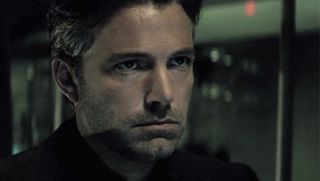
Okay, so Batman v Superman is appalling. Not only the worst Batman movie by far – at least Batman & Robin is funny – it's also one of most dismally misfiring, self-important, and just plain dumb blockbusters in recent memory. An obsession with posturing, hyper-masculine grim-dark to the point of a total rejection of irony. An unfocused, incoherent story, crippled by cast-bloat and a complete disregard for logical narrative or character dynamics. Instantly-punchable Jesse Eisenberg. Rampant Bat-murder. But you know what? None of that stops Ben Affleck from being good. In fact, he's one of several quintessential, textbook examples of a good Bruce Wayne simply being hamstrung by a bad director.
Read more: Batman v Superman: Dawn of Justice review
Fully committing to delivering the confident, focused, stony-faced, and desperately obsessed, mid-40s, peak-career Wayne we’d – surprisingly – never before seen in live-action, Affleck consistently fights the terrible script to bring weight and pathos to a role whose movie really doesn’t deserve it. A very particular, lowest-ebb, broken-down Wayne he might be, but as a snapshot of a highly specific (but legitimate) take on the character, his performance is really well-judged. Exuding intelligence as well as worn-out rage and desperation, and capable of turning on the charming façade while also making it feel like a façade, he clearly understands all the various layers and facets of the character, and manages to fit them all together very well indeed.
In fact, if we could just get him in a film that isn’t a rattling great shambles, Affleck could instantly jump up a few places on this list with no problem at all. Alas, Justice League is nor that film.
6. Will Arnett – The Lego Batman Movie (2017)

A kaleidoscopic remix of the traditional Bruce Wayne core, The Lego Batman Movie 's version of the character manages, just like the ’66 TV version (more on that a little later), to deliver a pretty faithful Wayne, despite all the exaggeration. Because of it, in fact. Since that’s how abstraction works, if you do it right. You pick out the strongest parts of a personality or situation, then blow them up to create a garish, cartoon version that concentrates those elements as it balloons. Adam West got it right, Joel Schumacher really didn’t, and Will Arnett absolutely nails it.
Read more: Every upcoming DC Extended Universe movie until 2020 and beyond
Okay, so his Bruce totally lacks the charm of ‘proper’ Bruces, and the arrogant assclown persona is entirely, 100% a real thing – the deepest thing about this Wayne is his superficiality – but as a more self-aware, self-reflexive take on Batman, he totally works. In fact, to long-time Batman fans, he also presents a brilliant deconstruction of the character. Effectively representing Bruce Wayne via all of the obvious negative traits that traditionally get ignored in the name of suspension of disbelief (over-privileged, self-assured loner takes the fate of a city into his own hands, ignoring the basic values of law and order, because he’s strong and rich and knows better than everyone else), Lego Wayne is a fantastically funny, self-obsessed, arrogant douche whose fixation on his own miserable martyrdom (but simultaneous denial of the same) consistently holds him back from the happiness and effectiveness that he claims to personify.
As such, he’s a perfect parody of the character, and a quietly excellent discussion of the legitimate themes at play under the surface. And also, by playing into a tale of redemption-through-learned-humanity, actually a great take on a classic Batman story trope, delivering a far, far better version than the one Batman & Robin so righteously bungled.
5. Christian Bale – The Dark Knight trilogy (2005 - 2012)

Bale is a tricky one to judge. On the one hand, he’s the longest-running, live action movie Wayne, with easily the most complete and interesting character arc. And he’s also in the best films. But I’m not convinced he’s a great Bruce Wayne in himself. Rather, I always feel that the brilliance of the Nolan trilogy is down to the creative moving parts around the central character, rather than the man himself.
Read more: The 25 best superhero movies of all time
Not that Bale isn’t great at times. His Young Bruce stuff adds a great deal of emotional weight to Batman’s early, faltering steps in Batman Begins, and he has some convincing moments of pensive musing along the way. He’s also the only on-screen Wayne to really ramp up the ‘cocky, self-indulgent jerk’ persona in order to increase his distance from others, so that’s nifty. It’s just that at his core, Bale’s Wayne isn’t 100% convincing. Yes, the Nolan trilogy isn’t exactly intended to be a pure adaptation of the comics, but rather a stripped back, more realistic remix. In fact, that’s its greatest strength. But whatever character flaws the trilogy intends to paint, there’s just a lack of likability in Bale’s Bruce that makes him hard to warm to. Behind the mask, he’s great – whatever you think of the voice – but without the Bat to hide behind, he’s not always that strong a presence.
4. Adam West – Batman TV series (1966)

Arguably the most charismatic of all Bruce Waynes. While the ‘60s Batman series was openly built upon a rampantly goofy vibe – the show was actually conceived as a parody of the ’43 serial, following its 1965 re-release – it wouldn’t be half as joyful if the jokes and nonsense weren’t amplified by West’s stone-cold, deadpan delivery. Very much in on the joke, but doing an incredible job of pretending not to be, West took the intense and stoic elements of Wayne’s personality and went nuts like a squirrel dinner party.
Read more: 12 superhero movies not based on comic books
To be fair, like Arnett's version, there is actually a fair old seam of ‘proper’ Bruce Wayne at the core of West’s portrayal – he’s strong, capable, quick-witted, and more than a bit pleased with himself – it’s just that like everything in the ‘60s series, the key qualities of the source material are dialed up to pantomime proportions. Were we able to watch the West series through a magical ‘scale it back’ lens – not that you’d ever want to – he’d actually be a pretty accurate Bruce for the period. Somewhat lacking in psychological trauma and brooding, regretful angst, admittedly, but the smart playboy side of things was well and truly covered.
But screw that. ‘60s Batman naught but a force of the purest good, and we must not sully it with talk of grimness. In fact, let's stay a bit camp before we get back onto the serious stuff...
3. Val Kilmer – Batman Forever (1995)
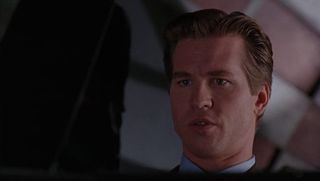
Another awkward case of ‘potentially good Bruce Wayne ruined by being in a clatteringly awful film, because oh my God, Joel Schumacher’. Of all the Waynes in this unfortunate sub-classification, Val Kilmer is easily the most interesting. And not just because his Batman movie actually contains flashes of potential and deliberate fun, prior to Batman & Robin's spiral into a black hole of ‘cynically hilarious if watched while rambunctiously drunk’.
Read more: Justice League review: Worth watching for Wonder Woman, but little more
For starters, Kilmer is the landmark case for actors being able to play Batman or Bruce, but not both. When you cast Batman, you’re effectively casting two roles that need to be tied together with clever writing and performance. That’s why casting Batman is tough. And with Val, we have a classic example of that. Great, underrated Bruce Wayne, entirely forgettable Batman. But this article is about Bruce Wayne, so let’s focus on that part.
For all the Technicolor camp on show in Batman Forever, Kilmer’s Wayne remains largely grounded. He’s thoughtful and sombre without being angsty. He’s stoic, but not emotionless. He’s charming without being flamboyant. He’s a centred, down-to-business Bruce Wayne, but he’s also entirely human with it. He really seems to get it, basically, to the degree that Batman co-creator Bob Kane actually cited him as his favourite on-screen Wayne of all time. It’s entirely arguable that Kilmer’s portrayal of Batman without the Batsuit goes a decent way toward holding the film’s tonal excesses together.
But alas, he can't quite match...
2. Michael Keaton – Batman (1989) and Batman Returns (1992)
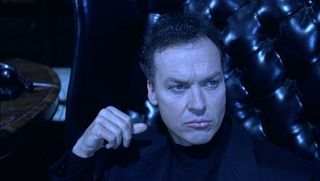
Right, I’m cutting straight to it, because you need to know. Michael Keaton is possibly the most underrated Bruce Wayne of the lot. After a vast, spurting torrent of judgemental fanboy outrage at Tim Burton’s casting of a ‘comedian’ as Batman, many were simply relieved that he turned out to be such a decent straight actor. But Keaton’s Wayne is really good. The capable, no-nonsense way he commands conversations. The distracted, not-quite-there vibe he gives off at the same time, like his mind is always on crucial matters that he can’t quite get to because he’s wearing the wrong clothes. The intense focus on Something More Important Than This, layered with that discordant sense that he could shatter at any moment if he doesn’t maintain his concentration.
And of course, there’s the '89 film's ‘Let’s get nuts’ scene. One of the few cinematic scenarios in which Wayne almost fails to keep his day and night personas separate, the daylight showdown between not-quite-Batman and now-identified-Joker is brilliant. Bruce has tracked down the clown, knows his secret past, and is in a position to take him out. Except that he’s not, because it’s happening when he’s the wrong Bruce, and the boundaries between his two sides – not to mention his lack of armour and gadgets – stop him from acting.
Bruce and the Bat clash internally, until a frustrated, still-green Wayne explodes, partly out of the infuriating nature of the situation, partly to distract the Joker from Vicki Vale, in lieu of being able to properly protect her, Dark Knight-style. It’s a marvellous, economical study of the character’s duality, and far better than Burton’s more blunt retread of the idea in Batman Returns.
1. Kevin Conroy – Batman: The Animated Series, multiple spin-offs and animated movies (1992 - present)
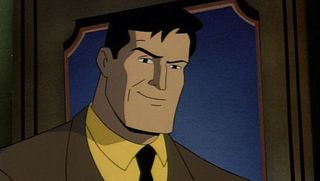
The Don. The boss. The absolute king of on-screen Bruce Waynes and Batmans. I'm sorry if that sounds hyperbolic, but I’m not going to dishonour Kev by holding back. Conroy, you see, effortlessly conveys each and every facet of Bruce in his every appearance in The Animated Series. And you never even need to see his face.
Grim, stoic focus? It’s there all the time. Wry sense of humour, underpinned by the aforementioned grim, stoic focus? Yep. When Conroy’s Bruce has moments of weakness and uncertainty, they always sound like the controlled breakdown of a man whose primary instinct is to never break down. And crucially, he perfects the element of Bruce Wayne that few other actors ever have – despite it being fundamental. The sheer, damn nobility of the guy.
Because forget the ‘80s-inspired, angry, snarling psycho-bloke version of Batman. That’s not who he is. That’s – as Grant Morrison points out in his notes on his Arkham Asylum graphic novel – perhaps who he might have become if he hadn’t become Batman, if he hadn’t learnt all the discipline, and self-control, and selfless, codified restraint that that required. But that’s not who he is now. And Conroy exhibits that fact constantly, his every word and deed dripping with propriety and decency, whatever personal turmoil or conflict he might be dealing with on the inside.

